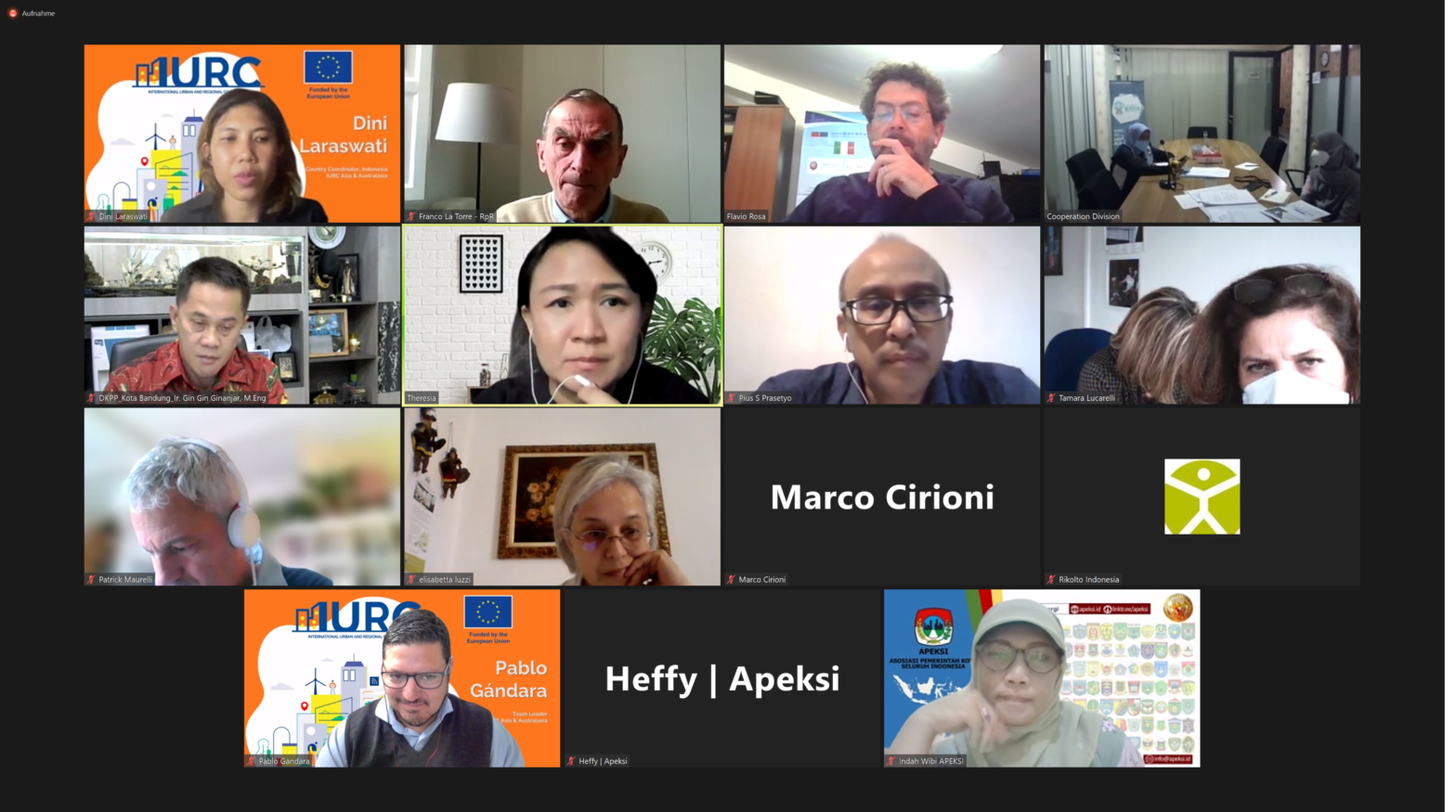On 18 March 2022, city officials from Bandung City of Indonesia and Rome City of Italy met online for the first time to introduce their existing initiatives related to urban food. Both cities also brought their partners to the meeting. The Sapienza University of Rome, also involved in the previous cooperation under the IUC framework, participated in the meeting. Meanwhile, Bandung City invited the University of Parahyangan and Rikolto Indonesia, representing the local university and civil society. The event was also joined by the Association of Indonesia Municipalities (APEKSI). Apeksi’s presence was very important to ensuring that the exchange of knowledge under this cooperation could be transferred to other Indonesian cities.
Tamara Lucarelli and Franco La Torre, who represented Rome City, shared Rome’s experience on urban food under European programmes. Rome was awarded a “Good Practice City” at the 2017 Urbact City Festival for its Resilient Urban Agriculture. Rome offered unique and innovative best practices in regulations and capacity management, in which they develop a participatory urban gardening project. The good practice contributes to the improvement of the governance processes by connecting different competencies and municipal offices.
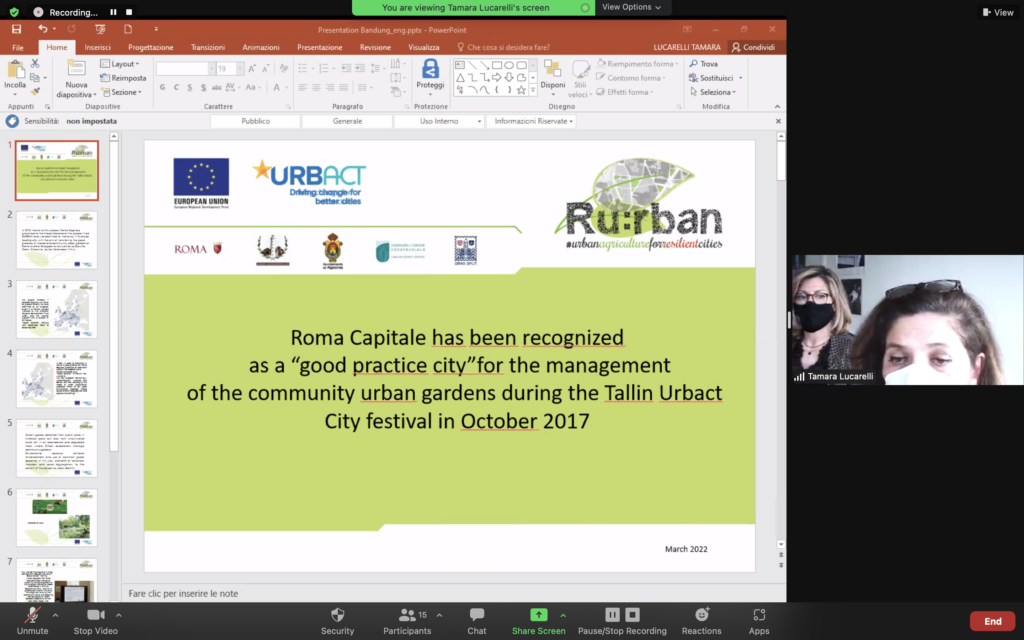
Tamara from the European Projects Department of Roma Capitale presented the RU:RBAN project, aiming to transfer the good practice of shared and urban community gardens of Rome to other European cities. The project began in 2018 and ended in 2021. The second project, “RU:RBAN Second Wave”, was launched in 2021 with a similar objective. The knowledge transfer included newcomer European cities under the three components of good practice: 1) capacity building, 2) governance, and 3) vocational training. In these two RU:RBAN projects, Rome played a big role as a lead partner, where members of local civil society groups active in urban agriculture and community gardens also participated.
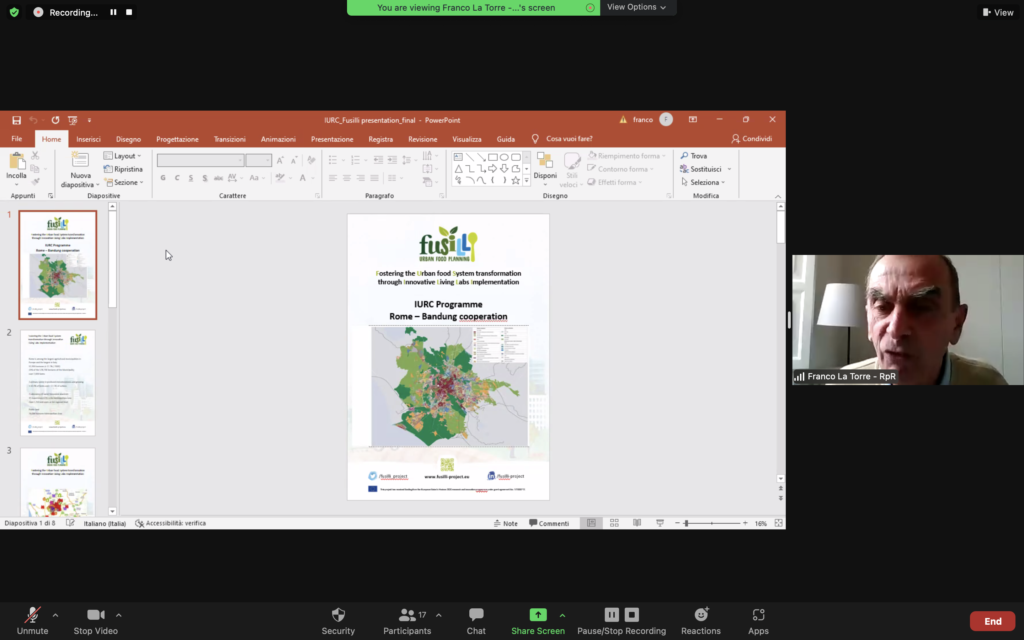
Further sharing was added by Franco from Risorse per Roma S.p.A, who presented the Fusilli project, in which 12 European cities including Rome were involved. The project facilitates the transformation of the cities involved towards more sustainable food systems by acting on food policies through living labs. Rome is among the largest agricultural municipalities in Europe and the largest in Italy. More than 65% of its territory is protected environmental and natural areas, half of which is used for agricultural activities. There are more than 200 urban gardens managed by associations, including 3,200 plots used as community gardens. They are considered as a crucial aspect of urban metabolism and social inclusion. Further, Franco highlighted the establishment of an integrated food policy, approved by the City Assembly of Rome on 27 April 2021. The new food policy included ten priority areas for action and set out eight criteria to measure the impact. It also emphasised urban regeneration as a main strategy instead of land consumption. In addition, the remarkable effort of Rome to improve school meals has certainly been a powerful driver to inspire the civil society to engage in successful urban agricultural projects.
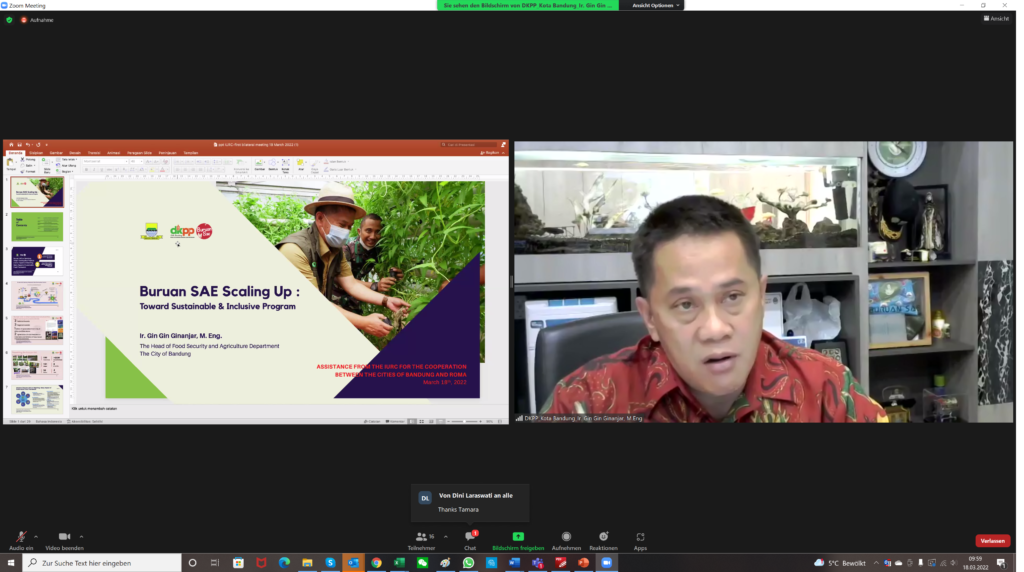
Gin Gin Ginanjar from the Food Security and Agriculture Department of Bandung City presented “Buruan Sae” as Bandung’s urban farming best practice. Due to the limited availability of space for food production, almost 96% of food in Bandung City is produced outside the city area. Through the Buruan Sae programme, Bandung City has supported the food security of families and communities. Buruan Sae is an integrated urban farming programme that utilises unproductive land of the household to grow vegetables, medicinal plants, flowers, and fruits and raise fish and livestock. For two years of implementation, about 330 farmers groups or more than 3,330 individual farmers have participated in the programme. Buruan Sae has generated some potential impacts of the sustainable food framework, e.g., i) to improve family nutrition, ii) to improve the governance process, iii) to enhance food security, iv) to promote environmental initiatives; v) to support the additional family income, and vi) to empower the community. The Bandung government has committed to the continual improvement of the Buruan Sae programme with four priority areas. The first one is to improve farm technology and technical efficiency. The second is sharpening the identity, which aims to strengthen farmers’ sense of identity and belonging. Next is to manage the community by an awareness campaign, capacity building as well as supporting the inclusive programme. And the last is brand maintenance to ensure that Buruan Sae continues to succeed.
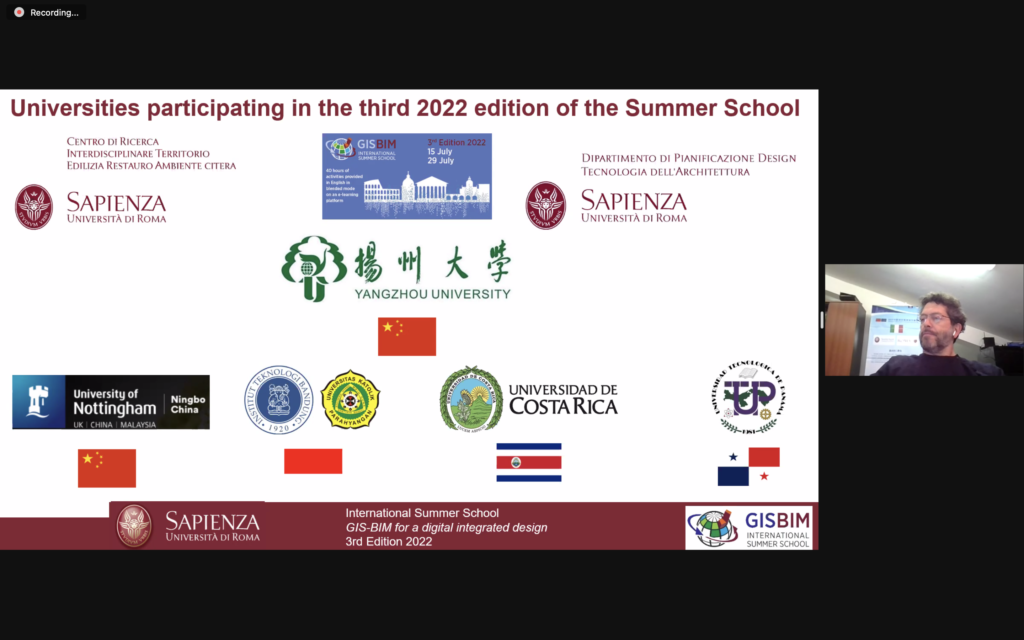
In addition to the presentations from both cities, Flavio Rosa as a representative of the Sapienza University of Rome promoted cooperation in the cluster of academia. He shared the upcoming 2022 edition of the summer school with the core topic of Digital Twin on the issues of integrating GIS and BIM solutions in planning/design. Universities in Bandung are welcome to join the programme, which offers a scholarship to one student.
To conclude the meeting, Pablo Gándara, Team Leader of IURC Asia & Australasia, identified several possible pilot actions on urban food such as urban gardening, citizen engagement, joint videos and joint campaigns. It was agreed that the two cities would look closely at their counterpart’s presentation and list questions on specific topics or projects to be answered at the next meeting.
